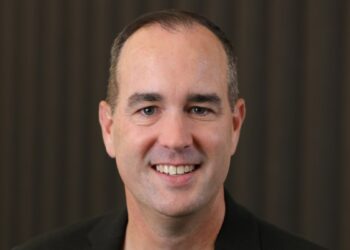The new standards, to be set by the Financial Adviser Standards and Ethics Authority (FASEA), will apply to those licensed to provide financial advice from 2024.
Those with a bachelor’s degree in a related field – accounting, financial planning or advice, business, commerce, law or economics – will need to complete a bridging course of three study units to meet these standards.
The new guidance does not distinguish between those operating under a limited licence and a full AFSL, meaning accountants providing basic SMSF advice will be – as it stands – expected to do the same training as those providing holistic advice.
“SMSF professionals are not distinguished in any way,” Kath Bowler, chief executive of Licensing for Accountants, explained to SMSF Adviser.
“SMSF professionals tend to come from either an accounting or a financial planning background and it is that background that seems to be taken into account, rather than SMSF qualifications or designations they may hold. If they are from an accounting background, they are likely to need to do three additional units of study,” she said.
The scope of advice given under a limited versus full AFSL is vastly different, and as such, principal at Ariel & Associates Jeremy Danon believes it’s “definitely not reasonable” to group the education requirements of all licensed advisers together.
“I believe that it is important to distinguish between those ‘financial advisers’ operating under a limited AFS licence,” Mr Danon told SMSF Adviser.
“Recommending and organising the creation of an SMSF is part of an accountant’s duties and responsibilities in regard to the financial health and wellbeing of a client. It is the accountant who recommends whether a client’s business or activities would operate best under a trust, SMSF, company or sole trader structure,” he said.
“For something that was traditionally their domain, accountants are being lumped with all other financial planners with no exemption or grandfathering relief,” he added.
katarina.taurian@momentummedia.com.au



Isn’t this the same argument that risk specialists used without success?
The problem I see are the naive comments of “basic SMSF advice” and “The scope of advice given under a limited versus full AFSL is vastly different”. Firstly, the advice is not basic. If you are dealing with a SMSF, your are dealing with a complex structure. Secondly, the scope of the advice doesn’t reduce the complexity of the advice. I have seen too many problems over the years with accountants and financial planners lazily advising clients to salary sacrifice to super (The client “limited” the scope to the question “Should I top up my super”). It takes a well educated professional to recognize the client is asking the wrong questions and doesn’t fully appreciate the complexity of the situation.
Welcome to the world of the other specialists in the financial services industry-life risk writers. We too have been lumped in with “holistic advisers”, to our chagrin. VaND btw, THERE ARE NO DEGREES to train risk writers
So a bachelor degree, a postgraduate qualification, decades of experience, plus recently-completed Rg146 training and all manner of hoops jumped through in order for practitioners to get a limited licence apparently isn’t sufficient training to be able to tell a client whether he/she should make Super Contributions. Good grief!
Always makes me laugh when new membership/licencing education requirements are set down as mandatory by people who don’t actually hold those qualifications themselves.
It’s legislation, welcome to the world of financial planning. By the way I really agree with your last sentence and I think the people making the changes don’t actually have a f*(%ing idea but that is for another time.
It is high time accountants undertook complete training in the SMSF space if they want to continue to provide advice. Accountants are not a protected species, so get with the program or get out. As an SSA I was required to undertake specialist study and training and if I wanted to be an accountant I would have expected to do the same study and training as accountants currently do and I would have done this willingly without question. It’s called professional learning.
But Bob, you are missing the point. All the proposed additional educational requirements have nothing to do with SMSFs – it’s all about FASEA’s new code of conduct and general units of study that are applicable to [i]all [/i]financial advisers – ie, anyone who provides personal advice to a retail client for almost all financial products.
And where are our “professional” accounting bodies?
that’s ridiculous. It is a choice to operate under a limited licence and so the educational requirements should be the same as a full. What if these limited licence people decide to go to a full licence… then what? It’s a bit like a doctor saying oh I’m, only ever going to be a finger specialist so I don’t need to know about the rest of the human body! Really Everyone needs to have the same qualifications, period. None of this limited rubbish. Play the full game or go away. I thought we moved on from this argument
Couldnt agree more. The issues is that there is never a consistent approach applied to all. Always an exception or carve out for different sub-groups because they’re ‘special’, ‘trusted advisers’ or only do ‘limited’ parts of the whole.
Lol, welcome to the world of Financial Planning !!!! Good luck